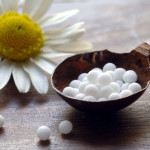Category: Health
Created by: Kremena
Number of Blossarys: 2
The Organon of Medicine is written by Samuel Hahnemann, the founder of homeopathy. This book describes the principles and practice of homeopathy. Hahnemann wrote 6 editions of the Organon from ...
Dr. Wilhelm Heinrich Schüßler — also spelled Schuessler, particularly in English-language publications — (1821–1898) was a German medical doctor in Oldenburg who endeavored to find natural remedies, ...
Cell salts are also called biochemic remedies or tissue salts). A homeopathic physician, W.H. Schuessler, developed the Biochemic system using 12 different 'cell salts', believing that their ...
A miasm is defined as a hereditary genetic energetic disturbance or burden which can, over time, potentially involve relatively serious organic compromise, the expression of which also depends on a ...
Christian Friedrich Samuel Hahnemann (10 April 1755 – 2 July 1843) was a German physician, best known for creating a system of alternative medicine called homeopathy. In 1781, Hahnemann took a ...
An aggravation is the temporary appearance of new symptoms, or a temporary intensification of existing symptoms, following a dose of a homeopathic remedy. Aggravations are harmless, usually mild, ...
An antidote is a substance, or a remedy, that counteracts the effect of a homeopathic remedy. High temperatures are thought to antidote remedies. Mint is said to be an antidote of Natrum muriaticum. ...


 English (EN)
English (EN) 





